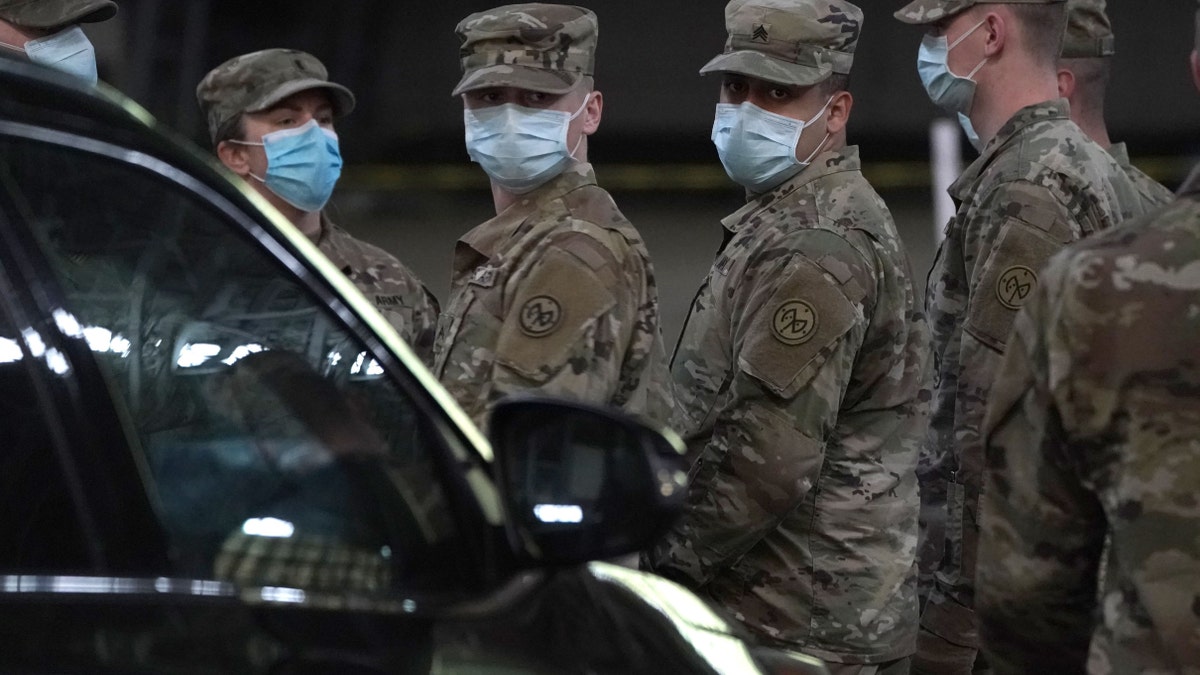Studies suggest coronavirus is far more widespread than expected
Insight from Fox News contributor Dr. Marc Siegel, Fox News medical contributor and professor at NYU Langone Health.
Get all the latest news on coronavirus and more delivered daily to your inbox. Sign up here.
Army scientists plan to start testing new COVID-19 vaccines on humans as soon as this coming September if small animals -- such as mice now being tested -- succeed in developing antibodies after receiving a new prototype vaccine.
“The Walter Reed Army Institute of Research has now produced three vaccine types, with the Army planning to select one to move forward to initial clinical testing in humans,” Army Secretary Ryan McCarthy told reporters April 16, according to a Pentagon transcript.
Candidates for human testing are slated to arrive as soon as June of this year, once a vaccine prototype is determined to be safe for human experimentation, Terry Welch, strategic communications director, Walter Reed Institute of Research, told Warrior.
PENTAGON TAKES AIM AT CORONAVIRUS WITH 8,000 VENTILATORS
“Once your immune system comes into contact with a disease and defeats it, it creates antibodies. The testing on mice is to make sure they are creating the antibodies,” Welch added.

Army National Guard soldiers take a break after loading food into the back of a car at the Kingsbridge Armory, which is being used as a temporary food distribution center during the COVID-19 crisis,in the Bronx Section of New York April 20. 2020 - file photo. (Photo by TIMOTHY A. CLARY/AFP via Getty Images)
With safety and effectiveness as defining requirements for use of new vaccine prototypes in humans, Army developers seeking to fast-track the project explain that formal approval for a new vaccine is still likely as far as a year away. However, Welch did say that there are some instances where preliminary FDA approval can be expedited for “emergency use,” depending upon need and established safety parameters.
One reason it can take many months to solidify or formally approve an effective vaccine is due to the complexity associated with what scientists call the “adaptive immune system.” Developing antibody defenses against specific pathogens can be a complex and challenging medical process, according to a 2011 essay in the “Journal of Infectious Global Diseases” called the “Fundamentals of Vaccine Immunology.”
PENTAGON MODIFIES 1,500 CONTRACTS IN CORONAVIRUS, SMALL BUSINESS SUPPORT EFFORT
As opposed to the body’s more general resistance, called the “innate immune system,” an adaptive immune response is “specific to the particular pathogenic agent.” Therefore, an innate system, the article explains, consists of protective measures described as a “first-line defense” such as intact skin and mucous membranes that “prevent the entrance of many microorganisms,” the essay states.
Other elements of an innate system include things like inflammation or elevated body temperatures caused by a fever able to further stop or fight off pathogens and toxins. However, these biological methods used by the so-described “innate immune system” do not enable an immune response to “improve its reaction with each repeated exposure to the same pathogenic agent,” the essay explains.
This is where the adaptive immune system comes in, as it consists of blood proteins called antibodies and T-cells able to fight-off, target or defend against a specific pathogen. While an adaptive immune response takes longer to develop, it “has a memory which means that the adaptive immune system will respond more rapidly to a particular pathogen with each successive exposure,” the essay states.
USNS COMFORT COMMANDER DESCRIBES HOW NAVY DOCTORS SAVE LIVES ABOARD THE HOSPITAL SHIP
These biological phenomena described in the essay explain why there is so much discussion now about “antibodies” specific to COVID-19; a vaccine exposes the body to low levels of a pathogen to help the body develop the “antibodies” needed to destroy it, as referred to by Welch.
CLICK HERE FOR COMPLETE CORONAVIRUS COVERAGE
CLICK HERE TO GET THE FOX NEWS APP
COVID-19 immunity is, not surprisingly, capturing the attention of many experts at the moment who are vigorously working to better understand the virus. Interestingly, one ICU doctor now treating COVID-19 in Northern Virginia said one treatment being explored involves taking blood plasma from recovered coronavirus patients and injecting them into sick or infected patients --- to give them the antibodies and, in effect, pass on an immunity.


